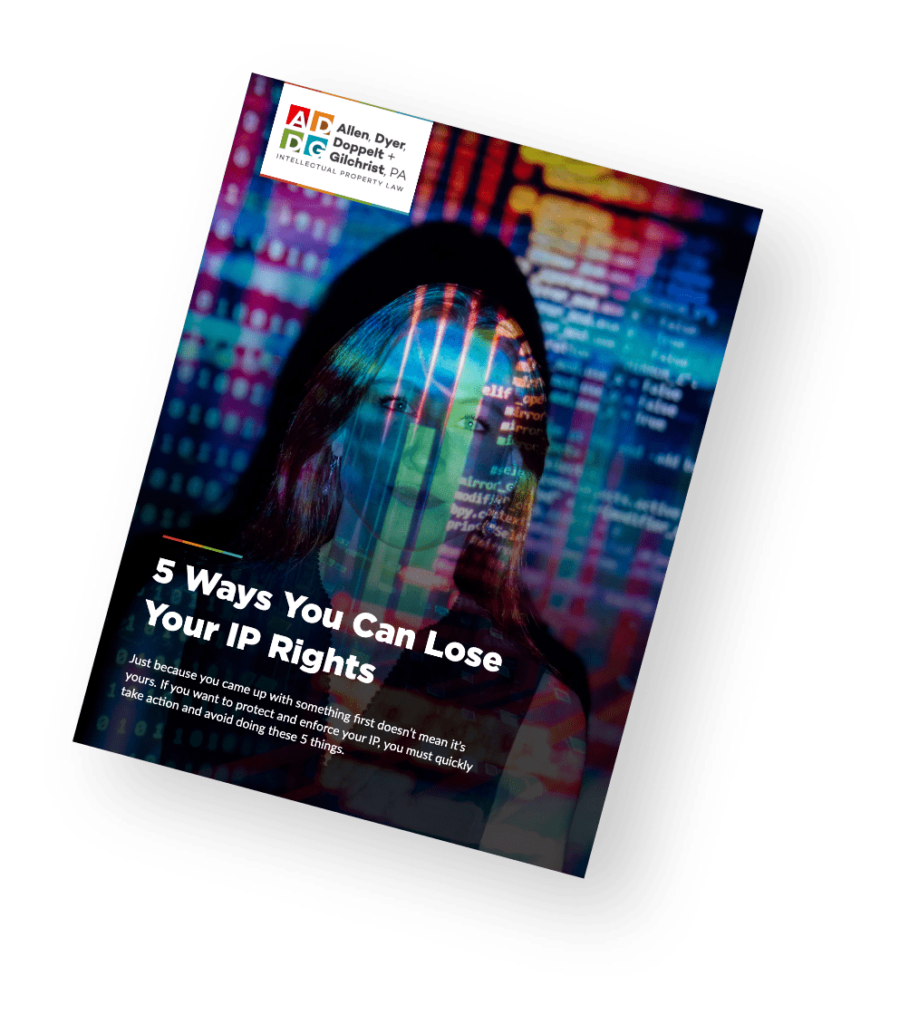What Is Alternative Dispute Resolution?
When a patent, copyright, or trademark owner believes someone is using their rights (intellectual property rights), the traditional way to resolve the issue is to hire a lawyer specializing in this area of the law, send a cease and desist letter and if the issue is not resolved, file a lawsuit. Lawsuits can take years and cost hundreds of thousands of dollars. As the name implies, Alternative Dispute Resolution (ADR) is an effort to resolve the dispute outside of the traditional lawsuit, which usually involves arbitration or mediation.
What is Arbitration?
Arbitration is an agreement to have the dispute decided by a third party, much like having a private judge. An arbitration proceeding is like a court proceeding, the parties will prepare and present the evidence and receive a final decision. The rules of evidence are relaxed, and it is a less formal proceeding. The downside of Arbitration is that the losing party has extremely limited appeal rights and the process can still be expensive. The advantage of Arbitration is that the parties can select an Arbitrator who has experience in the law and the process is usually much quicker than a Court proceeding.
What Is Mediation?
Mediation is really nothing more than a settlement discussion, aided by a third party, to get the parties to reach an agreement that makes sense to both sides. Mediation is non-binding, meaning the mediator will not decide the case. By the time a dispute is a candidate for mediation, it usually means the parties are no longer talking, or at least not communicating effectively. A skilled mediator will attempt to bridge the gaps that have created the impasse and offer creative alternatives to resolve the dispute. Even if a settlement is not achieved during the process, the process permits the parties to re-engage in effective communication, appreciate the opposition’s positions, or define and narrow the dispute.
The Importance of Selecting a Good Mediator
The mediator acts as a neutral voice, typically a voice of experience who has been through similar disputes and can offer insight that the parties often have difficulty recognizing. A good mediator will help all parties understand the strengths and weaknesses of their case, so the parties look at the realistic outcomes before reaching a decision to settle or not to settle. A poor mediator will do nothing more than relay settlement offers back and forth. Mediation is most effective when a mediator can offer insights, ideas and compromises that come from experience with similar disputes.
Benefits of Mediation in Patent Cases
Mediation is effective in many patent cases. The life of patent case is long, expensive, and riddled with small victories and small defeats. Mediation can occur at any stage of the proceeding, whether before a lawsuit, at the initial stages of a lawsuit, around the Markman debates, before or after Summary Judgement motions are resolved, before or after trial and even during an appeal. Patent lawsuits are some of the most complex and challenging cases our federal courts face. A patent lawsuit can be a drain on a company’s business development strategies, personnel time, and other distractions from business. Because the risks of patent litigation are so high and outcomes so uncertain, mediation has become very common in patent lawsuits and very effective at resolving the dispute. An experienced patent litigator as a mediator can help the parties reach a settlement and save the parties substantial sums of money and time. A mediated settlement agreement can also include benefits and resolutions a Court cannot provide, an agreed license, joint development opportunities or other relationships that can benefit both parties.
Limitations of Mediation
There are very few limitations or downsides to engaging in mediation. The mediation will cost the participants the hourly rate of the mediator and whatever your attorneys may charge. A good meditator will at a minimum get the parties to realize the downside and costs of engaging in a protracted lawsuit. Ideas and information can be exchanged during the process that will get the parties thinking about the benefits of settlement. This can often lead to a settlement weeks or months later. A good mediator will follow up with the parties and there are no limits to how many times a dispute can be meditated.
The Mediation Process
Most mediations begin with a joint session with all the parties, lawyers, and the mediator. In the joint session, the mediator will review the process, remind the parties of the confidentiality obligations, and let the parties know what to expect. This is often followed by each party presenting their version of the facts, the disputes, and the expected outcome. Obviously, the parties rarely agree on much during these presentations, but it is important that the parties, the lawyers, and the mediator appreciate the other positions in the dispute. As the mediator will not decide the outcome, there is no winning or losing this joint session, it is designed to frame the dispute and the options.
In some circumstances, the mediator may determine a joint session is not productive and will start with the parties separated. This can be done for a variety of reasons: the parties’ relationship has deteriorated to such a degree that a joint session would not be helpful, the emotions involved are so strong that a joint session may make it harder to foster open communication, or the parties are so familiar with the dispute that rehashing it would offer no benefit. A good mediator will explore this issue before the mediation begins.
After the joint session, if any, most mediators will separate the parties, begin the process of communication, and investigate potential settlement avenues. These individual sessions allow the mediator and the parties the opportunity to openly discuss options, strengths, and weaknesses without the fear that the opposition will seize upon any thoughts or comments. The mediator will usually go back and forth between the parties with ideas, comments, questions, and suggestions. The framework for a settlement most often takes place during this process.
During the mediation process, the mediator may ask to speak privately with the lawyers, the parties, or a single party. The mediator may determine another joint session would be helpful. There may be facts or circumstances that would dictate the mediation be suspended and rescheduled. The mediator may determine that there is no chance of resolving the matter and declare an impasse, as the process is up to the parties to settle, not the Mediator. Often, the parties will agree on terms of settlement and the parties, their lawyers and/or the mediator will begin drafting an agreement or agree to key terms and have the lawyers work on the formal agreement later.
Is Mediation the Best Strategy for Your Situation?
The outcome of any patent, trademark, copyright, or trade secret case is impossible to predict. Judges do not have expertise in patents or the background to understand the patent process, much less the complex technologies covered by patents. Likewise, copyrights and trademarks have a unique set of requirements, defenses, and traps that those not experienced in the area may not appreciate. With this uncertainty necessarily a part of the lawsuit process, mediation is well suited for complex intellectual property cases. Mediation can eliminate the uncertainty inherent in the process and cap the expenditure not just of costs and attorney’s fees, but of the incredible drain on the resources of a company involved in the patent litigation machine. But selecting the right mediator is extremely important. Intellectual property disputes are filled with complex legal requirements and technical defenses that may not be appreciated by those without the experience in the field. Parties are often more willing to accept the advice and suggestions of a mediator who can speak from experience.
If you have questions or need assistance with an ADR matter, contact us today! Our trusted intellectual property litigation attorneys have represented hundreds of clients in mediation and can help you get the best resolution for your dispute. Our certified mediator is available to mediate any patent, copyright, trademark, trade dress, trade secret or other complex dispute bringing the parties to a resolution that will save time, money and the headaches of litigation.
About the Author
Brian R. Gilchrist is Board Certified by The Florida Bar in the area of Intellectual Property Law. He has substantial experience in all phases of intellectual property litigation, including patents, trademarks, copyrights, trade secrets, deceptive trade practices and restrictive covenants.
Share This





